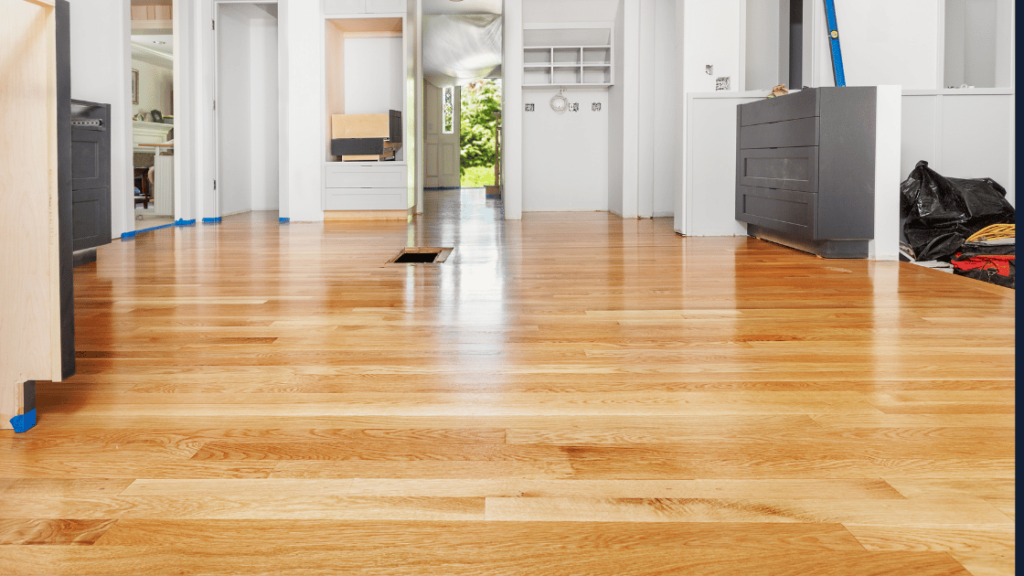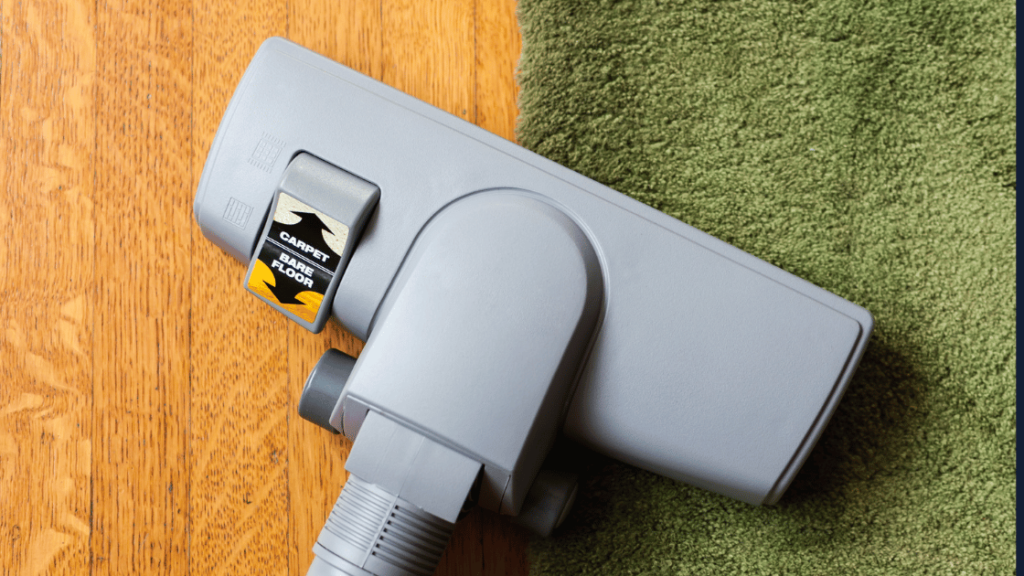
Key Highlights
- A clean shower floor is crucial for hygiene and aesthetics.
- This guide provides a step-by-step approach to effectively clean your shower floor, from gathering the right supplies to tackling tough grout stains.
- Learn about different types of shower floors and the specific cleaning needs they have.
- Discover effective natural remedies and commercial cleaning product options for a sparkling shower floor.
- Maintain a clean shower floor effortlessly with these easy-to-follow preventative measures and cleaning hacks.
Introduction

Keeping your bathroom clean and welcoming begins with a shiny shower floor. Many people find this job daunting, but cleaning your shower floor can be simple. With the right method and cleaning solution, you can quickly remove soap scum and dirt from your shower floor, including those stubborn grout lines. This helpful guide will give you everything you need to make your shower floor spotless.
Understanding Your Shower Floor

Before you start cleaning, it is important to know what your shower floor is made of. Different materials need different care.
If your shower floor is tile, natural stone, or acrylic, it will help you pick the right cleaning products and methods. Using the wrong cleaning solution can hurt your shower floor. This could result in expensive repairs.
Types of Shower Floors and Their Unique Needs
Porcelain tile makes an excellent choice for a flooring in showers as it lasts longs and resists moisture well though the grout lines on them often collect dirt making them dirty at times requiring mild cleaners which do not harm the grout when removing build up on it.
Natural stone like granite or marble for example enhances luxury within your bathroom but these stones are porous so special cleaners are needed so that there is no damage or color change due to acids used.Consequently use only nonacidic cleaners meant for natural stone surfaces when doing maintenance on such surfaces if you want them looking good always .
Make sure to check if your grout lines are sealed or unsealed. Sealed grout defends much better against staining and is also easier to clean. On the flip side, unsealed grout requires more frequent cleaning and might necessitate reapplication of sealers after deep cleaning.
Common Challenges in Cleaning Shower Floors

Soap scum causes a dirty shower floor in many cases. It’s a mix of soap leftovers and minerals from hard water that are difficult to get rid of especially in areas where they can accumulate quickly, becoming slippery and hiding bacteria.
Although not harmful to your health, hard water leaves unsightly mineral marks on your shower floor making it look dull and faded which need extra cleaners for their break down.
Mildew grows especially in grout lines and corners of a moist bathroom but they may be toxic or look bad.If you suspect mildew is growing somewhere then you should act quickly.
Preparing to Clean Your Shower Floor
Before you start cleaning, make sure to get the tools you need. Also, clean your shower in a space with good air flow. This helps you clean better and keeps you safe.
Having all your tools ready makes the job easier. You can focus on your cleaning without any breaks. Good air flow stops you from breathing in strong cleaning smells. This makes your cleaning time healthier.
Essential Cleaning Tools and Supplies

When washing your shower floor, grab these items:
- Cleanser: Select a cleaner that works best on your shower floor. Use a mild pH-neutral cleaner for natural stone. On the other hand, choose a tough cleanser for ceramic or porcelain tiles if you have stubborn stains.
- Scrub brush: Buy a scrub brush with hard bristles to remove grout lines and tough soap scum. Rough scrubbers should not be used on delicate surfaces like natural stone.
- Microfiber cloth: These cloths are great for cleaning surfaces and polishing your shower floor. They can remove dirt and excess water due to their tiny fibers.
You may also need a spray bottle, bucket, warm water, and gloves to put on. For severe stains or mold issues, keep baking soda and white vinegar ready at hand.
Safety Measures and Precautions
Although it is important that you clean your shower floors well, it is more essential that you keep safe while doing so. Begin by ensuring there is ventilation in your bathroom before the process starts which could be opening of windows or turning on exhaust fan in order to protect oneself from fumes.
Protective gloves should be worn when using cleaning products particularly those with harsh chemicals so as to safeguard yourself against skin irritations as well as allergies.
Always read the instructions provided by the manufacturers together with the safety precautions before using such products towards a better cleaning process that is safe too. It is important that one follows recommended dilutions along with safety steps for effective cleaning process.
Step-by-Step Guide to Cleaning Your Shower Floor

Now you can make the process easier since you have prepared all needed tools and safety measures. Let us break it down into simple steps just like we do below this guide will help in reducing effort when cleaning your shower floor effectively,
On top of everything else regular cleansing of your shower room’s floor will help much more than simply doing nothing about it would ever do because it should then go a long way in preventing accumulation of dirt and soap scum thus each cleaning exercise would be easier and quicker.
Step 1: Remove Loose Debris and Hair

Before you apply any cleanser, first clear away loose debris such as hair and soap shavings from your shower floor. This important step prevents clogging of the shower drain. It also allows the cleaner to work better on the surface.
Begin by washing your shower floor with warm water. This will loosen any dirt or fragments making them easy to pick up. Use your hands or a small dustpan brush to gather them, then throw them away.
Next, check the shower drain for any visible blockages. Remove everything blocking the drain like hair or debris so that water can flow down easily during rinsing.
Step 2: Apply Your Chosen Cleaning Solution

Now you are ready to use the cleaning solution you have chosen. Those who purchased cleaner from a store will follow its mixing and usage instructions provided on it. An alternative could also be using vinegar as a natural cleanser.
Mix equal proportions of white vinegar with water in some spray bottle. Spread this mixture onto every part of your shower floor, especially along grout lines.
Give it about five or ten minutes after applying the cleaning solution before starting scrubbing activity since this way, those cleaners would dissolve scum left after bathing which often become hard later on when trying to brush them off
Step 3: Scrubbing Techniques for Effective Cleaning
So you leave your cleaning product to work and then you have to scrub the mess out of it. Take a scrub brush and start cleaning the floor of your shower. Be keen about the dirt-trapping grout lines.
For stubborn stains on tile floors, get a special grout cleaner. Let it sit for so long as you can before scrubbing it off. For natural stone, however, use softer brushes and gently rub otherwise they’ll scratch.
Use a damp sponge or a microfiber cloth to wipe off the shower floor after scrubbing. This is important because it gets rid of any remaining detergent or dirt particles. Regularly rinse out this cloth using fresh water so you don’t end up spreading mud again.
Step 4: Rinsing and Drying for a Sparkling Finish
Rinse your shower floor thoroughly with clean water till there’s no more soap left on it. Finally, rinse with hot water in order to remove moisture completely and also avoid forming water spots.
Wipe down the shower floor and grout lines with a clean dry towel after rinsing them off completely. Drying these places will prevent watermarking as well as discouraging mildew from developing.
To make sure your shower floor is always looking clean squeegee away all excess water. By doing this simple chore regularly, there would be less likelihood of having water spots that may make your bathroom look dirty within days.
Addressing Stubborn Stains and Buildup

Sometimes even frequent cleaning does not prevent stubborn stains or buildup from accumulating on one’s shower floor. No problem! There are some extra steps and certain specific cleaning methods that can help resolve such issues.
Whether hard water stains, embedded dirt or mold is at stake doesn’t matter whatsoever – you must know what caused the problem and apply an appropriate remedy which will restore its shine back to normalcy.
Natural Remedies vs. Chemical Cleaners
If you have stubborn stains, you can either go for natural remedies or chemical cleaners. If you want something mild, baking soda and water will make a paste that can be applied to the stain. After 10-15 minutes, gently rub and then rinse it off.
Hydrogen peroxide is another good natural alternative. Just pour it directly onto the stain. Allow it to sit for a few minutes and then scrub and rinse it away. For difficult stains, mixing hydrogen peroxide with baking soda and dish soap does wonders.
There are also some chemical cleaners like chlorine bleach. However, these should be used cautiously because they can damage certain surfaces or create fumes. Before using a chemical cleaner ensure proper ventilation in addition to putting on rubber gloves for your protection.
Special Considerations for Grout and Tile
Because grout lines easily collect dirt and grime during cleaning, this makes them almost impossible to clean thoroughly. If your regular cleaning methods haven’t been effective enough use the specialized grout cleaner just meant for such purpose. You may also adopt the use of hard bristles when washing in between the tiles with grout lines.
Consider sealing the grout after you clean it as an extra precautionary measure .The sealer keeps future stains out of grout while at the same time making maintenance easy by providing no corridors letting things like dust or moisture through this porous medium therefore keeping grout cleaner over long periods of time.
You would need to use stronger cleaning products if your grout is badly stained or discoloured. Oxygen bleach is an ideal option since it is safe for the grout. Just mix it with water as directed in the instructions, and then apply to the grout lines. Let it stand, scrub and rinse well.
Preventative Measures for Shower Floor Maintenance

To keep your shower floor looking clean, you need some easy habits added to your cleaning routine. These simple actions are what help your shower floor stay clean for long. They also reduce the need for deep cleaning.
When you deal with dirt and grime early, you save time as well as effort involved in handling them. This means that by doing so, you will also prolong the life of your shower floor by maintaining its beauty.
Daily and Weekly Cleaning Habits
The best way to prevent soap scum as well as mildew from forming on a shower floor is by using a daily shower spray each time after taking a bath on this surface. Such sprays contain ingredients that break up soap and mold prevention substances that keep molds away from forming inside showers or bathtubs thus giving them a fresh look.
Allot several minutes every week towards performing a thorough cleaning. Deep cleansing must be done weekly but using gentle cleaning solutions at all times when scrubbing floors; however concentrate more on corners together with grout lines. It makes subsequent cleanings easier since there is no chance of dirt getting darker entrenched into surfaces through this regular clean-up.
After you shower, consider wiping off the walls and flooring utilizing a squeegee.This helps remove excess water and stop water spots from forming.It takes only two minutes but it’s very effective in keeping your shower tidy.
The Importance of Proper Ventilation
Good ventilation helps eliminate moisture from bathrooms hence preventing mold growths on showers’ floors.Turn on the bathroom fan after every bath for thirty minutes or even an hour.This is aimed at taking away any extra moisture and humidity out of the bathroom.
In case you do not have a fan in your bathroom, it will be prudent to open up a window. In this case, fresh air can get inside and lower humidity levels thereby maintaining good airflow that helps dry out the shower area. This ensures no mold grows as well as keeps your shower floor cleaner for long.
Additionally, make sure that you wash and dry your bath mat or rug frequently to avoid mildew from forming on it.These materials could hold onto moisture leading to molds if neglected.
Advanced Tips for an Immaculate Shower Floor

Want some tips on how to clean perfectly? Use these useful pieces of advice in order to revive your shower room!
By following these steps you’ll manage to reach out difficult places and remove stubborn stains.Regular cleaning may miss them but now they would be completely washed away from the floor.
DIY Cleaning Solutions That Work Wonders
Check your pantry for natural effective cleaning solutions. These recipes often use everyday household items such as dirt along with soap scum:
- All-Purpose Cleaner: Mix equal parts white vinegar and water in a spray bottle. To boost its cleaning power, add one tablespoon of dish soap.
- Baking Soda Paste: Make a paste by mixing baking soda with water.Apply on tough stains, leave it for few minutes then scrub and rinse.
- Citrus Power: Utilize the natural cleaning power of lemons or grapefruit. Halve them, dip in baking soda and scour your shower floor. Acid helps dissolve soap scum while baking soda gently scrubs.
Expert Tricks for Hard-to-Reach Areas
Cleaning some hard to reach areas in your shower can be a real challenge. However, several smart tricks ensure that you easily address these difficult corners and grout lines.
An old toothbrush works well when cleaning grout lines and fixtures; as its bristles are tough and it is also small to fit into crevices perfectly. Simply deep this brush inside the liquid you use for washing up then scrub.
A steam mop with an attachment for grout cleaning is ideal for larger areas. The steam penetrates porous surfaces to loosen dirt without using chemicals that can damage them.
Consider investing in a corner tool. These tools are designed specifically to reach those tricky corners where dirt usually accumulate at home. A lot of times they will have a head that has been pointed or angled making it easy to clean tight spots.
Read More: Beginner’s Guide: How to Keep Floors Clean with Dogs, 2024
Conclusion
It is essential to keep your shower floor clean in order to maintain a healthy bathroom. Cleaning the needs of your shower floor and having a good plan will prevent mould, mildew and stubborn stains from forming on you shower floor. Your shower’s cleanliness may seem so perfect if only you could find the right method together with effective products used during cleaning instead of just going about as though any way was fine.
Remembering not forget about tile cleanings too because paying attention only on grouts alone would definitely not work out well while maintaining hygiene over a long period of time thus necessitating daily together with weekly practices that will help reduce chemical intervention plus promoting good air flow and natural remedies which contributes into ensuring constant cleanliness of our showers floors for both elegance purpose and continuous enjoyment every day as one goes about taking his or her bath.
Frequently Asked Questions
How Often Should I Deep Clean My Shower Floor?
It is advisable to deep clean your shower floor. In order to reach that point, you should ensure that this activity is done at least once per week. Start by cleaning the tile floors with a grout cleaner and then rinse off with clean water. Doing so helps in preventing accumulation of soap scum as well as grime.
Can Vinegar Damage My Shower Tiles?
However, vinegar should not be used on natural stone tiles. The vinegar acid will damage it. It is better to use pH-neutral cleaners for natural stone and tile grout so that harsh chemical will not ruin them.
What’s the Best Way to Prevent Mold and Mildew Growth?
Proper ventilation prevents mold from growing. After every showering session, switch on the exhaust fan or open the window. Also, wipe down your tiles in addition to floor for extra moisture while maintaining sanitary practices.



